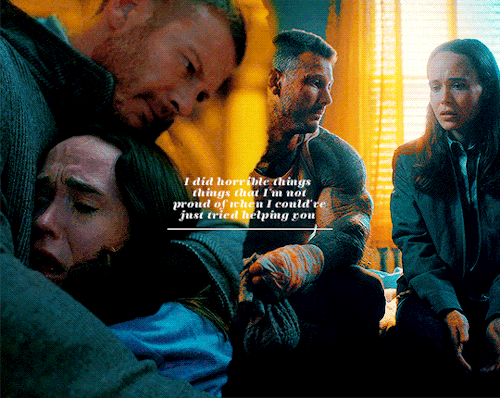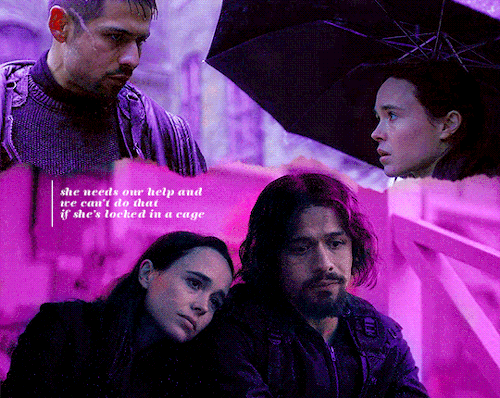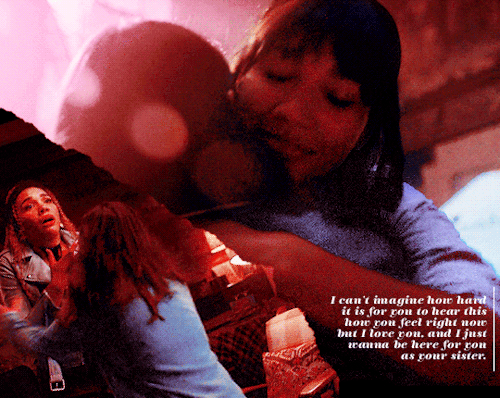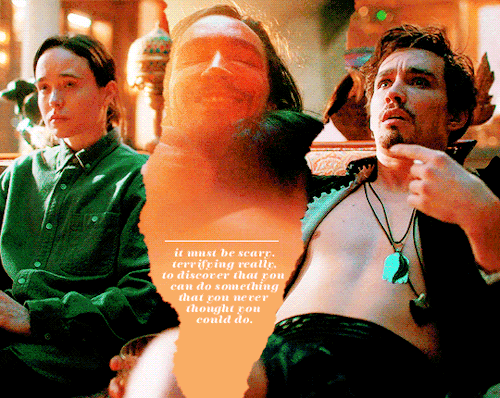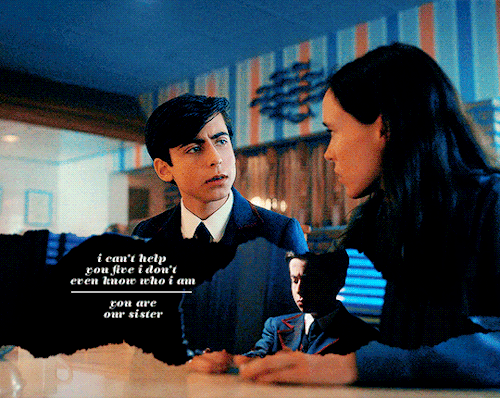Friendly And Gentle Reminder That If There Is A Thing You’ve Been Wanting To Make And Have Been Putting
friendly and gentle reminder that if there is a thing you’ve been wanting to make and have been putting off because you don’t know if anyone will like it
DO THE DAMN THING
we doing self indulgence 2020. make stuff. put it out in the world. it don’t get notes? who cares, you put a thing that literally did not exist before out there. keep doin the thing. do what makes u happy
More Posts from Waitingrm and Others
note to self: just because someone did the thing you were thinking about doing, and did it way better than you could ever hope to do, doesn’t mean it would be stupid or pointless to go ahead and try to still do the thing anyway.
Writing a First Draft
I’ve seen a lot of advice posts that encourage writing a “bad” first draft, or saying that the point of the first draft isn’t to be “good” just to be done, but I have yet to see any examples of what that actually means (which is unfortunate because for a lot of first-time writers that may just mean that their best effort on a first draft isn’t “good enough”), so that’s what I’m here for! The ultimate advocate of ugly writing, babey! Let’s write some “bad” first drafts!!
Forewarning that this is going to be difficult for you perfectionists out there (same hat tho!!!), but really, if you’re looking to finish a first draft within a reasonable time frame (and not continue to rewrite the beginning 50 times to get there, only to be disappointed when the next scenes aren’t as “good” as the beginning), then this really is the way to go. Perfectionism comes in super handy in later drafts, but it’s a real burden in the first draft, and I really really relate to that. What I find that helps keep my perfectionism in check while I’m drafting is to keep a separate Word doc open (or a notebook and pen at hand) to jot down new ideas or things that have changed throughout the draft. Putting a page number down next to the notation will save your life as well. Your future self will thank you!
Okay, so let’s get into it! You have an idea, and you need to get that first draft out before you lose motivation or move on to a shiny new WIP idea. What’s that first draft going to look like?
Write the scenes you’re excited about first. If you’re someone who, like myself, needs to write things in chronological order, then write these scenes in chronological order - but! if you have the conclusion figured out, then write it now, yes, even before that one bit in the middle you’re not sure about. Is it likely that some details in these scenes will change as you keep writing different parts of the book? Yes! Do it anyway! Anything you write will be helpful for later drafts, so write those scenes!!! Plus, if you start with what you’re excited about, you’ll want to keep writing even after they’re finished, because your brain will just keep generating other super cool ideas for those in-between scenes. And yeah, there will definitely be filler scenes to write, but you can probably worry about those in the next draft.
If you’re on a roll, don’t worry about punctuation, grammar, or spelling. I mean it! If those red squiggles in Word bother you, turn them off (they’re really only semi-helpful for editing, and we’re not doing that right now). If you write faster and think better using “internet grammar” (minimal/excessive punctuation, no capitalization, weird spelling, etc.), then do that! If it helps you get words on the page, it’s worth doing.
If you’re not on a roll, try putting some space between what you’ve written and what you need to write. For me, that frequently means hitting enter (even mid-sentence if I suddenly get stuck), typing “monkey,” and then hitting enter again, as many times as it takes for my brain to reboot and remember what the hell I was going for. If that means I have a chain of 20 monkeys in the middle of a paragraph, so be it. They get to hang out there until I come back in draft two and delete them.
I’ve also written “uhhhhhh” and “oh fuck now what” several times in a first draft. It happens. It’s easier to write in a way that mirrors your thought process, so just do what works. Use memes in your prose to keep it moving - it’ll make future you laugh when you go back through on draft two!
Don’t be afraid to change major pieces of plot - but don’t you dare go back and rewrite earlier pieces to match! Let’s say you’re at the end of act one and you revealed some tragic detail about your MC’s backstory, but now you’re in the middle of act two and you’ve realized that it no longer fits your idea of MC and you no longer want it to be true. Simply make a brief note of it and keep writing like that scene in act one never happened. Deleting, rewriting, and repurposing are all for later drafts! The goal on the first draft is literally just to reach the end - and it’s inevitable that you’ll find and change the story along the way.
Forget about foreshadowing. No matter how detailed of an outliner you are, the fact is that in the first draft you really don’t actually know what’s going to happen yet in your book (see point 5). So forget about trying to foreshadow. Spell out what’s happening plain as day - because the first draft is just one long exposition dump to aide you in future drafts. If you get halfway through and a sudden twist or weird piece of backstory jumps out at you, write it in as if you had foreshadowed, even though you haven’t yet. Make a note of it, and maybe even note where you could foreshadow this in the next few drafts, but keep moving forward.
Changing perspectives is fine even if it goes against how you know you want your final draft to be. If you have a scene in mind that you know you need to include, but you have no idea how MC would react during it, but you know how your side character would react, write the scene from the side character’s perspective. You can think about MC’s POV in that scene later - again, the point is just to get it written, so if switching POVs gets you through the scene, do it.
Ultimately, this is what people mean when they say your first draft is going to be “ugly.” It’s going to be a little (or a lot) messy. But that’s okay. The struggle of the beginning writer is realizing that your first draft is not going to look like anything you’ve read before - because those are final drafts. And to the gifted writers who breezed through school (like I did) by submitting their first draft essays for grading - that’s not going to work here. Every time you rewrite a piece, it gets better. If you try to make your first draft perfect, you will just end up frustrated and disappointed at the time you wasted, because you’ll end up reworking 80% of it or more in the subsequent drafts. Your writing style will change and improve, and your knowledge will grow, and every time you revisit a draft, that will be reflected.
So write that ugly draft. Insert so many author’s notes mid-paragraph that you look like an early 2000s fanfic writer. Contradict previous scenes like you’re constructing the most elaborate Winchester Mystery House -esque draft the world has ever seen, complete with paragraphs that lead to nowhere and mysterious monkey chains cutting sentences in half.
And then, in the second draft, make it look as though the first draft never happened.
The Boy Who Lived
HARRY: I shouldn’t have survived – it was my destiny to die – even Dumbledore thought so – and yet I lived. I beat Voldemort. All these people – my parents, Fred, the Fallen Fifty – and it’s me that gets to live? How is that? All this damage – and it’s my fault.
GINNY: They were killed by Voldemort.
HARRY: But if I’d stopped him sooner? All that blood on my hands. And now our son has been taken too–
GINNY: He’s not dead. Do you hear me Harry? He’s not dead.
HARRY: The Boy Who Lived. How many people have to die for the Boy Who Lived?
- HP&TCH, Act Four, Scene Six
We learned in Philosopher’s Stone that Harry’d deepest desire was to be reunited with his family. To have a family. And we see at the end of Deathly Hallows, that he’s achieved this desire. He’s married to Ginny and has three children. His children. For the first time in his life, he’s surrounded by loving blood relatives. And you know that makes him happy, happier than anything else.
But deep down–or maybe not so deep down–he doesn’t think he deserves that happiness. He looks at all the people who didn’t grow up to have families of their own. The people who lost family members, who lost siblings, parents, children, partners. And then he looks at what he has and, believing so tragically that the deaths rest on his own shoulders, thinks he doesn’t deserve it. One of Harry’s central motivating forces is his desire to save people, and he wasn’t able to save everyone.

So, hold that in your mind as you read the next bit.
ALBUS: The poor orphan who went on to save us all – so may I say – on behalf of wizarding world kind. How grateful we are for your heroism. Should we bow now or will a curtsey do?
HARRY: Albus, please – you know, I’ve never wanted gratitude.
ALBUS: But right now I’m overflowing with it – it must be the kind gift of this mouldy blanket that did it…
HARRY: Mouldy blanket?
ALBUS: What did you think would happen? We’d hug. I’d tell you I always loved you? What?
HARRY: (finally losing his temper) You know what? I’m done with being made responsible for your unhappiness. At least you’ve got a dad. Because I didn’t, okay?
ALBUS: And you think that was unlucky? I don’t.
HARRY: You wish me dead?
ALBUS: No! I just wish you weren’t my dad.
HARRY: (seeing red) Well, there are times I wish you weren’t my son.
(There’s a silence. Albus nods. Pause. Harry realises what he’s said.)
HARRY: No, I didn’t mean that…
- HP&TCC, Act One, Scene Seven
Harry breaks right after Albus implies that he’s never loved him. And then again when Albus says he wishes Harry wasn’t his father. Because Albus, unknowingly, has just confirmed what Harry believes deep down. He’s not worthy of his family’s love. He doesn’t deserve them. He doesn’t deserve that happiness. He didn’t even know what he was saying to Albus as he said it.
And I’m thinking–the process Harry goes through in the course of the play, his efforts to see Albus for who he really is–that has as much to do with healing himself as it does to do with mending his relationship with Albus. By learning how to be a good parent to Albus, he’s proving to himself that he’s worthy of being loved.
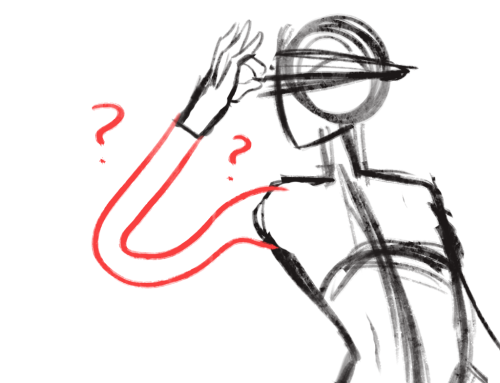
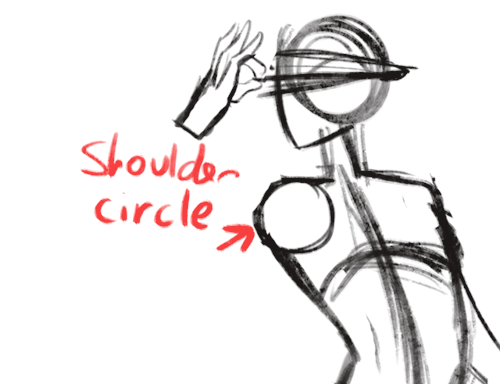
how to draw arms ? ?
Just in case this needs to be said:
It’s the first draft. Use the word “suddenly.” Put as many dialogue tags and adverbs as you want. Say “he saw” “she remembered” “she felt” “they wondered” as many times as you need to. Put the em dash there, put in too many commas, use semi-colons with reckless abandon. Type in [whatever] instead of thinking up a title for something. Just write it. If you worry too much about the particulars, about all the advice posts you’ve seen saying whatever you’re doing is wrong or not good enough, you won’t get anything done. It will slow you down as you go back and try to reword what you just wrote to make it better, proper. The first draft doesn’t have to be perfect. It just has to be done. And when you get to the end, you’ll find that all those “mistakes” are just clues for your future self to put together to make it all better.
Putting in adverbs and certain dialogue tags are a note for you as to who is saying something and how they’re saying it. When you’re editing, you can make sure it shows through the story instead. The word “suddenly” is a reminder to make things more abrupt. The first draft is just you mapping out where you want to go and how you want to get there. Don’t waste time trying to get it 100% right now, because then it will never get done. Don’t think too much– just write. Save the thinking for editing later.
i knew i was going to die when i saw you for the first time in twenty-seven years.
your voice, first—oh, that voice—and then i turned and saw you, across the room, across the great divide—and i swallowed hard because i knew. i was going to die for you because i would always die for you. remember? all those times i ran for you, jumped off the quarry for you, drove your truck fast down the highway because you liked when i got reckless—all that stupid shit i did for you, no question (a little pushback, maybe). i would die for you, simple. and i knew when i looked to you and you looked back to me that i was going to.
but i didn’t want to. i fought it every step of the way. i could see—if i just made it through the dinner, if i just made it through the pharmacy, if i just made it through the ritual, if i just made it through the sewers—there was a life with you, waiting patiently.
i wanted to make it.
we have lived a life of should-haves. all of us—and it goes back further than that summer: we should have turned left on jackson instead of right when we were just kids and maybe we never would have found ourselves in it’s path. and i should have told you, so many times. i had every chance. i should have followed you, gone wherever you wanted, driven west in that car i saved up for and forgotten all about new york, forgotten all about anything that wasn’t you. but we never really got it right.
when the claw went through my chest, it didn’t hurt. when i said your name and my mouth filled with blood, it didn’t hurt. when you laid me against the rock and pressed your hand to my stomach, it didn’t hurt.
but it hurt when i laughed and it hurt when you smiled that split-second smile. (that’s when i knew i would not last much longer). it hurt when your smile fell. it hurt when you walked away from me. it hurt knowing i could not get up and follow you. and it hurt knowing that when you came back to me, you would have to find me dead and i could not hold you—i would never be able to make the pain go away anymore and i would be the cause of it.
i knew i was going to die for you a long time ago. i had just forgotten for a while. i didn’t know it would be like this—i thought maybe you’d hold me a little longer, maybe i’d tell you then.
i don’t know what i said while i died. i wanted to say, i wish you wouldn’t go. i wanted to tell you i was sorry i would not keep my promise to hold on. i hope you know i wanted to. i remember the blurry and fragmented image of you, walking away after slipping your pinky from mine. most of all, i wanted to tell you that tomorrow, we should get up early and go back home to our place, how about it my love?
but the last thing i remember is you, behind me on the cliff at the quarry on a summer day, reaching out to take my hand before we jumped, your voice shouting my name. and then—
would it be a nice day tomorrow? would the sun be shining on you, the way i always liked?
i wonder.
Is it true that Reginald was only going to name 6 of the kids, and Five chose to be “nameless” so vanya could be named instead?
Not sure if I just heard it somewhere or if it was an actual thing
we talk a lot about Shauna being ruthless and violent and resentful, and not to say she isn't those things but also--
Shauna, who risks burning alive to save Van.
Shauna, who pauses to comfort the reunited Tai & Van after the latter is found safe
Shauna, who consoles and looks after Javi all through season 1 while his older brother is busy being misogynistic and getting fucked
Shauna, who takes on the job of butcher despite not necessarily wanting or enjoying it and never complains or slacks off even when the task becomes traumatizing
Shauna, who tries to get Jackie to eat, to keep going, when everyone else has given up on her by that point.
Shauna, who has to be goaded, essentially given permission before she becomes violent
Shauna, who loved her baby in spite of the stress her pregnancy added to an already precarious situation, who spoke to him and cradled him and futily tried to keep him alive, who buried him away from the others to keep him safe in death
Shauna, who kept her daughter's favorite childhood toy in her car long after she'd outgrown it, to always keep a piece of her close by
Shauna, who sees Tai struggling and invites her to stay over, so that Tai won't be afraid to sleep
Shauna, who goes along with Jeff's boring, milqtoast furniture salesman fantasies because while she doesn't love him the way she did Jackie, she does care about him and wants to make him happy
Shauna, who was the only one of the group to show up to Misty's how to get away with murder seminar and thank Misty for going to the trouble
Shauna, who is soft-spoken where Jackie is loud, conciliatory where Jackie is pushy, helpful where Jackie is lackadaisical, proactive where Jackie sulks.
Shauna, who's not a perfect friend or mother or wife but who's still quietly one of the nicest, most empathetic of the Yellowjackets and yet because she got drafted into being the group's butcher, wrote bitchy journal entries, and did one fucked up thing behind her best friend's back (which she immediately regretted and agonized over) gets rebranded by fandom as caustic, overly-snarky and quick tempered when it takes her 10 episodes to get pissed off enough to raise her voice
growing up is so weird because when I was in high school, it felt like the whole world. and I know that sounds dramatic but teenagers are dramatic and I made myself sick stressing over so many dumb things, like my senior quote and how I looked in school pictures, who liked and disliked me, and whatever the latest drama was.
and now I look at that building and it seems so small, and I realize it’s because—yeah—it was always small. everything that felt so big and overwhelming shrank in size the moment I stepped back from that place, and I wish it was something I’d been able to see while I was in high school so I wouldn’t have been so sad over things I’ve already forgotten.
anyway, I guess for any of my younger followers on here, just remember that sometimes you can’t help but get caught up in rush of high school, and because you spend so much of your time there, it becomes your whole world, but don’t forget that there’s a huge world outside of it and one day you’re gonna get to explore it and it’s gonna be huge and terrifying, but you’ll look back and see that so many things you stressed over in high school just weren’t worth it.
-
 allyendergirl liked this · 1 year ago
allyendergirl liked this · 1 year ago -
 bzzyb00-96 liked this · 1 year ago
bzzyb00-96 liked this · 1 year ago -
 moonshroooms reblogged this · 1 year ago
moonshroooms reblogged this · 1 year ago -
 moonshroooms liked this · 1 year ago
moonshroooms liked this · 1 year ago -
 dystopia-incognito reblogged this · 1 year ago
dystopia-incognito reblogged this · 1 year ago -
 oddgreyhound reblogged this · 1 year ago
oddgreyhound reblogged this · 1 year ago -
 oddgreyhound liked this · 1 year ago
oddgreyhound liked this · 1 year ago -
 eggtithing liked this · 2 years ago
eggtithing liked this · 2 years ago -
 intellectualrebel247 liked this · 2 years ago
intellectualrebel247 liked this · 2 years ago -
 skittlesthequacker liked this · 2 years ago
skittlesthequacker liked this · 2 years ago -
 thetorturedpoetsss reblogged this · 2 years ago
thetorturedpoetsss reblogged this · 2 years ago -
 thetorturedpoetsss liked this · 2 years ago
thetorturedpoetsss liked this · 2 years ago -
 interdimensional-chaos reblogged this · 2 years ago
interdimensional-chaos reblogged this · 2 years ago -
 elias-the-alien liked this · 2 years ago
elias-the-alien liked this · 2 years ago -
 anthropophobiblog liked this · 3 years ago
anthropophobiblog liked this · 3 years ago -
 sherlockholmesmypiratesociopath reblogged this · 3 years ago
sherlockholmesmypiratesociopath reblogged this · 3 years ago -
 trin2d2 reblogged this · 3 years ago
trin2d2 reblogged this · 3 years ago -
 littledragonslovetheirknights reblogged this · 3 years ago
littledragonslovetheirknights reblogged this · 3 years ago -
 thatwhichilove reblogged this · 3 years ago
thatwhichilove reblogged this · 3 years ago -
 thatwhichilove liked this · 3 years ago
thatwhichilove liked this · 3 years ago -
 lalunabloom reblogged this · 3 years ago
lalunabloom reblogged this · 3 years ago -
 inklingdancer reblogged this · 3 years ago
inklingdancer reblogged this · 3 years ago -
 inklingdancer liked this · 3 years ago
inklingdancer liked this · 3 years ago -
 devianta liked this · 3 years ago
devianta liked this · 3 years ago -
 gopissboy liked this · 4 years ago
gopissboy liked this · 4 years ago -
 candorablesblog liked this · 4 years ago
candorablesblog liked this · 4 years ago -
 notanrp-neurodivergent reblogged this · 4 years ago
notanrp-neurodivergent reblogged this · 4 years ago -
 allergiesaremygirlfriend liked this · 4 years ago
allergiesaremygirlfriend liked this · 4 years ago -
 who-goes-maractus reblogged this · 4 years ago
who-goes-maractus reblogged this · 4 years ago -
 who-goes-maractus liked this · 4 years ago
who-goes-maractus liked this · 4 years ago -
 icyryn liked this · 4 years ago
icyryn liked this · 4 years ago -
 onesiepie liked this · 4 years ago
onesiepie liked this · 4 years ago -
 marifer0502 reblogged this · 4 years ago
marifer0502 reblogged this · 4 years ago -
 marifer0502 liked this · 4 years ago
marifer0502 liked this · 4 years ago -
 disappears-in-snow reblogged this · 4 years ago
disappears-in-snow reblogged this · 4 years ago -
 friendly-peep reblogged this · 4 years ago
friendly-peep reblogged this · 4 years ago -
 pettyprocrastination liked this · 4 years ago
pettyprocrastination liked this · 4 years ago -
 catnip987 reblogged this · 4 years ago
catnip987 reblogged this · 4 years ago -
 catnip987 liked this · 4 years ago
catnip987 liked this · 4 years ago -
 sunflowerseraph liked this · 4 years ago
sunflowerseraph liked this · 4 years ago -
 cates123 liked this · 4 years ago
cates123 liked this · 4 years ago -
 amazing-mediocrity liked this · 4 years ago
amazing-mediocrity liked this · 4 years ago -
 imfandomtrashokay liked this · 4 years ago
imfandomtrashokay liked this · 4 years ago
